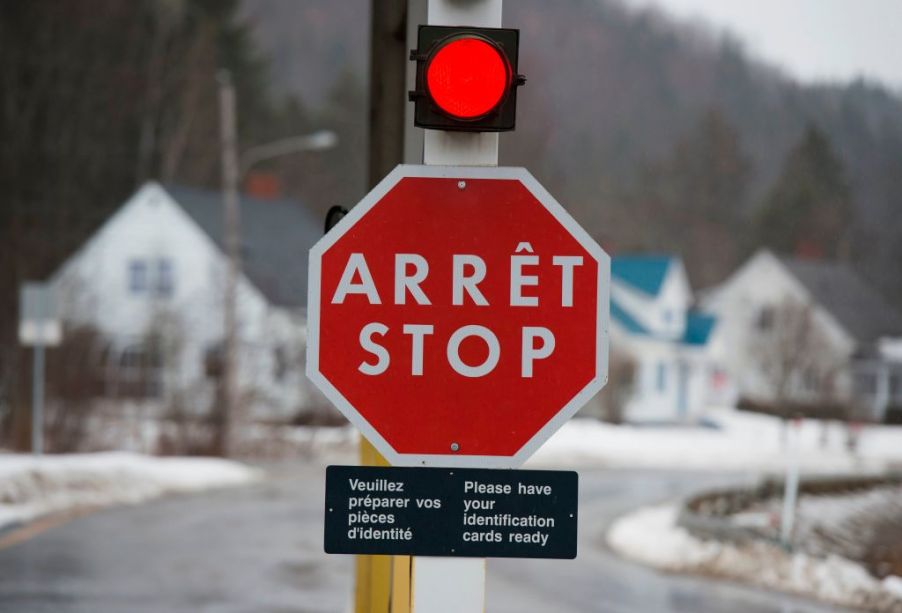
Canadians Vandalizing Cars With US Plates Because COVID-19
Wow, our friendly neighbors to the north are getting feisty. Or something. Everyone is going a bit nutty over fears of the coronavirus pandemic. As the US has done a bad job of containing it some Canadians are taking matters into their own hands to avoid a similar fate. Yes, Canadians are vandalizing cars with US license plates because of COVID-19.
The New York Times has noted that “Canadians are damaging cars with plates from the United States in an apparent effort to get their owners to leave and not come back.” And that’s not all. CBC News has reported there have also been scenes of harassment and even assault.
As to the assault, two people got angry after seeing a car with Florida plates on it. C’mon Canada! The two men approached the car owner and “poked him in the chest” questioning his reasons for being in Canada. It turns out Ontario Provincial Police determined the man was a Canadian citizen that vacations in the US frequently. Other reports tell of a Canadian working in the US. He drives a company car that has Michigan plates had his car keyed when parked. Sounds like he could have worked for Ford or GM though we are only guessing.
The Canadian border is closed until further notice for non-essential travel

The Canadian border is closed until further notice for non-essential travel. However, there are exceptions. Canadian citizens returning, essential workers, permanent residents and their immediate family members, and travelers in transit.
The problem is big enough that the premier of British Columbia needed to address it. He recommends people “who have offshore plates and are feeling harassed” should take public transit until such time as they can get their plates changed.
In general, Canadians question how the US has handled the pandemic as cases continue to rise. According to Johns Hopkins University Canada has had 121,610 cases of COVID-19. Here, in the tranquil confines of the US we have surpassed five million. No wonder they want us to stay away.
“People are stressed about COVID-19 and it comes out in strange ways”

Maybe Ontario Provincial Police spokesperson Jason Folz said it best when he told the CBC, “People are stressed about COVID-19 and it comes out in strange ways. This is perhaps one of those ways.”
The US Department of State recommends not traveling to foreign countries due to restrictions being implemented at any time. Just today New Zealand locked down after a number of cases were discovered. It had been more than 100 days since a new case was discovered. It also suggests that even if you do get to another country you may have problems returning to the US.
Most US embassies are either shut down or running with a severely limited staff. US embassies and consulates are mostly unable to provide services to US citizens. Unless you must travel it makes sense to forego those plans until we are out of the woods with the pandemic.




